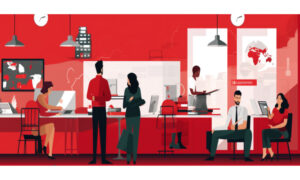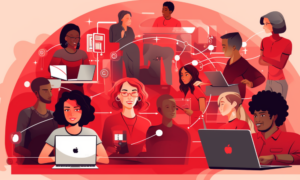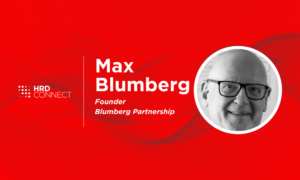What will the future of work look like? The downfall of the traditional 9-5
- 7 Min Read
In recent times the world of work has been evolving, recent studies by PwC and Deloitte have revealed what the workplace could look like in the near future
- Author: Louron Pratt
- Date published: Nov 21, 2018
- Categories

Millennials and flexible working
With the world of work constantly changing in the following years to come, we could be seeing the 9-5 culture changing. And with constant changes to being made to work culture, we could be seeing an increasing amount of different styles of working patterns. We delve in deeper into what the younger generation of professionals prefer to work, and how this could be changing.
As stated in a study carried out by PwC in 2017, millennials will make 75% of the workforce in 2053, bringing a significant change to labour. Research by PowWowNow also reveals that 70% of this workforce want flexible working options. With these changes being made, it is becoming  more apparent that this is taking more of a priority over the traditional working style.
more apparent that this is taking more of a priority over the traditional working style.
Research carried out by PowWowNow revealed that 64% of millennials want the office to change to remote working In 2014, the recent changes to regulations have enabled the right for employees in the UK to request this new way of working.
Flexible working could become so routine that employees are almost working as if they’re self-employed, suggests Jon Loftin, Head of Unified Communications at PowWowNow says “It’s going to be up to people to work flexible hours, but to set their own boundaries about when they will and won’t work […] People need to agree on boundaries with their employers, and you have to decide what’s going to happen for you in the workplace. It’s much healthier for workers not to have to travel to the office every day and work flexibility, even if that’s outside of traditional office hours, as traditional work practices can be soul destroying.”
So it has become apparent that these opinions could force a significant change in the way that we work. With an additional 66% of people participating in this research admitting that they would like to make their working hours more flexible.
It is important for businesses to consider meeting these desires if they are to maintain or improve their staff turnover and increase staff happiness. As new research initiated by Deloitte, finding that there is a strong link between companies offering flexible working, and employee loyalty, with 55% young professionals being expected to stay over 5 years when offered more flexible options at work.
Although flexible working does come with benefits, Ruth Kudzi highlights some of the challenges, saying: “Remote working isn’t wholly positive, because I think there might be personality types where the office provides the only social support they get and could cause an epidemic of loneliness, which is the most detrimental thing for your health. But for most people, having control over how they work will be massively beneficial. A business needs to take this into account with their employee training plan.”
Freelancing over permanent
Given the amount of attention around the option of flexible working in recent times, there have also been many companies who have considered using freelancers in oppose to hiring a full-time member in-house primarily for short-term projects. Research showcases that 43% of Gen Y are considering the gig economy as an alternative to full-time employment. The main reasons behind these recent changes into working patterns are because of financial and flexibility options. With 56% choosing to be a freelancer for better pay. As well as this, 42% of people told PowWowNow that they don’t have enough spare time during the week to experiment in different hobbies because of work.
Laurent Gibb, CEO at Staff Heroes comments on the shift in freelancers, saying “With ever more web platforms mediating between freelancers and companies and enabling them to rate each other, the gig economy shines a light on good and bad workers and employers, pulling up and professionalising the entire industry,”
He goes on to discuss the potential problems that may come along with hiring permanent alongside interim, saying. “As the gig economy easily leads to believe that workers can easily be replaced by each other, employers need to understand that they need to treat all workers, permanent or gig in the same way and make it accessible for everyone to join and work for them”
VR and new technologies are likely to revolutionise the way we work
In most recent times, the introduction of VR and other technological advances could potentially positively impact the way that we work.
Jon Loftin, Head of Unified Communications at PowWowNow, says “workers’ quick adoption of new technology at home is accelerating workplaces’ typically slow uptake. And that could extend to virtual reality (VR) and wearables: “Wearable tech could be incorporated in some way in the future. It’s difficult to see an improvement beyond a tablet computer because a screen is necessary. VR might come into the workplace at some point, it would be helpful when discussing issues with customers, not being limited to a flat image.”
However, Professor Feng Lui suggests that body language is still such an important language, and face to face interaction for meetings is still required. “Although VR could help improve these aspects, he claims that research has shown that e-meetings are more efficient if you already know each other before, rather than getting to know business partners through the electronic way”
In addition to this, voice technology is set to be the next big skills gap in the UK IT market. This is according to the inaugural Experis Industry Insiders report, which examines the impact of voice technology solutions on the talent market. The quarterly report has found that the voice technology market is set to grow significantly over the next seven years.
The importance of workplace culture
Although flexible working is becoming more of an important aspect of workplace life, it does seem as to many, culture is still important when choosing a place to work. 52% of young professionals agreed to this.
In comparison to generations before. It has been revealed that Generation Y prefers to not work just to earn money, and they look to work towards a purpose with work colleagues that they enjoy working with. This is already proving to have an impact on the workforce, with poor company culture costing the UK economy £23.6 billion per year according to a report by Breathe. We delve deeper into how much of an impact a transparent business could have on its staff and their customers.
Jonathan Richards, CEO and founder, at breatheHR comments on company culture, saying “Culture isn’t a soft option. It has a clear impact not just on business success, but on the economy and our society. This includes productivity, an area many SMEs struggle with and don’t have the time to dedicate to it. However, one way to boost productivity levels is improving management quality and giving employees autonomy and purpose, as our report reveals. All of which validates the fact that businesses are now operating in a culture economy, and small businesses who fail to realise this won’t last long.”
Although many companies have adopted and developed their own workplace culture for themselves, it is important for businesses to also formulate a plan where they can continue to attract young professionals, and continually tailor their culture to match their workforce.
Finally, it is also imperative for employers to pay attention to their diversity and inclusion within their business. With 18% of young professionals wishing their company would become more diverse, hiring people from different backgrounds is an important step that many businesses worldwide unfortunately still need to embrace.









